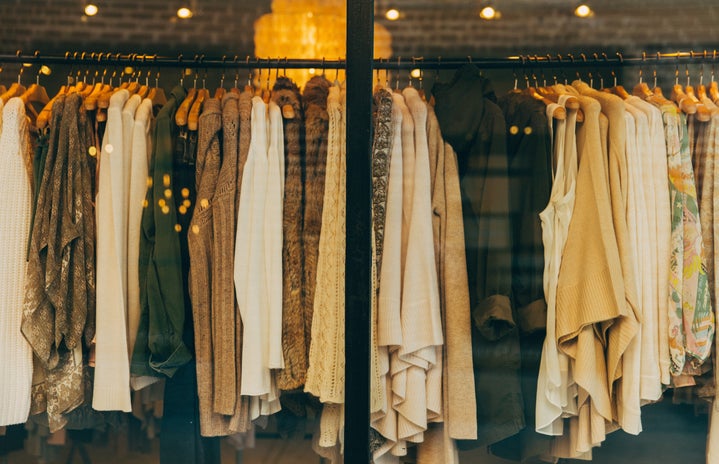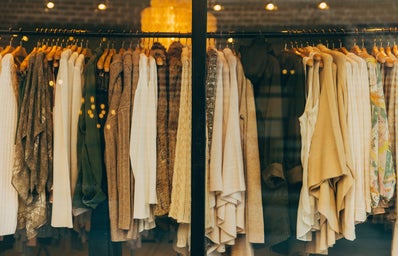In the past few years, thrifting has taken social media by storm by creating affordable, vintage, and local options all across the country. It can be extremely beneficial in spreading awareness about fast fashion, among other ethical problems that all consumers should be aware of. Even though shopping locally has become a trend, so has the gentrification of thrift stores. While meant for low-income families or individuals, thrifted clothes are now being resold at an increased price. Valuable necessities are being bought at a faster rate than normal, and many factors promote more systemic inequality. Here are a few tips to avoid contributing to these ethical problems while still enjoying thrifting:
- Avoid Necessities: Especially in Maine, articles of clothing such as winter jackets, snow pants, and even fleeces are so important in order to stay safe and healthy. However, they are also ridiculously expensive at most stores. Local thrift shops, Goodwill, and the Salvation Army offer these objects at a lower price specifically for families or individuals who can’t afford other options. If you go thrift shopping and can afford to purchase or have the availability to borrow these items, you should refrain from buying them second-hand.
- Go Online: This is a great resource to find individual closet sales rather than the upselling of clothes that were bought from thrift stores. Additionally, you can find flipped or upcycled clothing items ranging from slip dresses, embroidered shoes, or jean bags. This option also allows negotiation rather than a set price for items. Visit stores such as Depop or Poshmark to explore their prices and items!
- Moderation: Many stores do offer lots of jobs in the community, so it is important that they are supported. Thrift shopping is a fun way to shop locally and explore new fashion choices if done correctly and in moderation. Relating back to the first tip, buying frequently and buying necessities are some of the biggest problems: take the occasional trip and focus on categories like t-shirts, art, or jeans!
- Trade and Borrow: Rather than selling your own clothes, create a trade group with family or friends! You can try flipping an article of your own, borrowing an item from your friend for a week, or even just trading tops for a night. Creating this small community offers options you might not find elsewhere and gives you flexibility. With this option, you can also try on items that you aren’t sure about (an opportunity that is currently affected by the pandemic shutting down changing rooms).
Mindfulness is the most important quality that goes into ethical thrifting. Whether it’s choosing not to buy a cute jacket, limiting your purchases every visit, or fixing your own article of clothing rather than replacing it, there are endless options to continue thrift shopping without negatively contributing to these factors.


